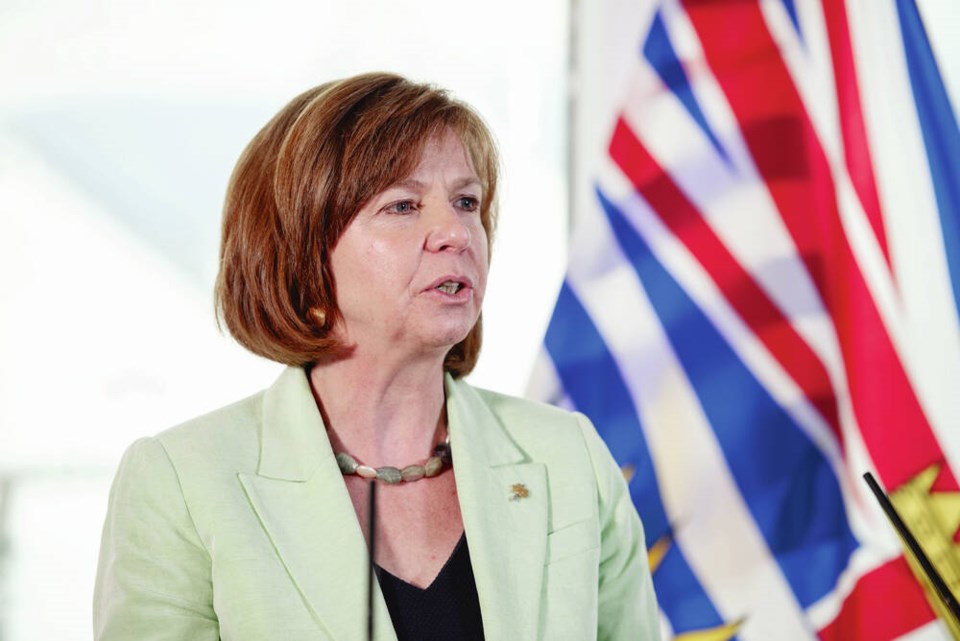At street level, Tuesday’s announcement of a limited suspension of federal drug laws in B.C. won’t make much immediate difference.
Police are already officially encouraged by federal and provincial governments not to enforce the possession laws on small amounts. And users of illicit hard drugs by definition ignore the laws. So suspending them will have zero overnight impact on overdose death.
But as a signal of where the federal and provincial governments are headed, it’s clear the lengthy, major retreat from the “war on drugs” stance is in full flood. Anyone over 18 in possession of less than 2.5 grams of listed hard drugs will be immune from arrest and confiscation of their drugs starting in January 2023.
The vast majority of drug confiscations are under that measure.
They’ll get a pamphlet instead, directing them to help. It may be useless, but the view is that it will do less harm than arrest, stigma and shame does. B.C. Mental Health and Addictions Minister Sheila Malcolmson said they’ve heard from all quarters that forced treatment does not work.
It’s a three-year trial, but given the energy B.C. officials put into winning it, there’s a good chance it will be permanent, and perhaps go national. It was enough to bring Vancouver Mayor Kennedy Stewart to the verge of tears.
“I felt like crying,” he said when he heard of the decision. “I still feel like crying. This is a big, big thing.”
The long-range goal is to “guarantee dignified lives for drug users,” he said.
The politics of the decision were made clear when federal Mental Health and Addictions Minister Carolyn Bennett, who called the decision a “template,” said: “For too many years, the ideological opposition to harm reduction has cost lives.”
Decriminalization is designed to force the change of attitude another few notches away from the old criminal model toward the harm reduction, public health approach.
It will likely follow the safe consumption idea — supervised walk-in spots to use illicit drugs safely — which first got federal approval in Vancouver and is now available in 37 Canadian cities.
Safe supply, meaning government-funded prescriptions to high-risk people for safer alternatives to the lethal drugs now sold on the streets, got underway two years ago and was expanded last year with a $23 million provincial commitment. That could follow the route taken by the safe consumption and decriminalization efforts.
Bennett said: “Putting in place a regulated safe supply of drugs is the real antidote to the toxicity of the present supply.”
The failure of measures during the six-year-and-counting public health emergency effort to reduce deaths is now an accepted fact of life. Malcolmson acknowledged it again Tuesday.
“We continue to lose lives at a terrible and unprecedented level due to the terribly increased toxic drug supply. … Innovation and determination have been outpaced by the increases in illicit drug toxicity.”
A death review in March found twice as many people are now dying than when the overdose crisis was first declared in 2016.
B.C. used the falldown as one of the reasons to decriminalize when it filed an application to Bennett last year.
The exemption applies to opioids (including heroin, morphine and fentanyl), cocaine, methamphetamine and MDMA (ecstasy).
Provincial health officer Dr. Bonnie Henry said: “This is not the one single thing that will reverse this crisis.”
But the stigma of illicit drug use creates a powerful sense of shame that stops users from talking to friends and family, or seeking help. Decriminalizing people who use them is an important step to removing the fear, shame and stigma, she said.
Just So You Know: The thrust of decriminalization is to encourage drug users to get help. But that introduces a whole different problem.
Chief coroner Lisa Lapointe briefed MLAs on the crisis two weeks ago and noted anyone who can meet the building and zoning rules can open a treatment centre and no qualifications have to be met.
“It can be yoga and herbal tea. It can be psychoanalysis, group therapy. … Because there are no reporting requirements, we actually don’t know what’s effective. … We have no idea.
“It’s something I find quite astounding.”
• To comment on this article, write a letter to the editor: [email protected]




